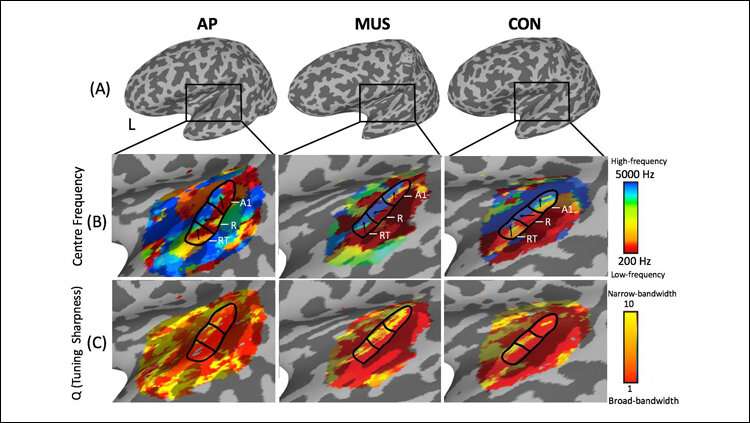Population receptive field (pRF) maps of tonotopy (center frequency) and tuning sharpness (Q) in auditory cortex in representative subjects from each group. Credit: McKetton et al., JNeurosci (2019)
New research published in JNeurosci reports features of the brain in musicians with absolute, or perfect, pitch (AP) that likely enable individuals with this rare ability—shared by Mozart, Bach, and Beethoven—to precisely identify musical notes.
Keith Schneider and colleagues compared auditory cortex structure and activity of three groups of 20 participants, including AP musicians, non-AP musicians of similar musical expertise, and a control group of individuals with minimal musical training. The AP musicians had a significantly larger auditory cortex capable of representing distinct tones without a reference note.
AP is rare, even among expert musicians, and the relative contribution of genetics and experience to this ability is debated. These findings suggest AP may be more strongly under genetic control than previously thought, given that nearly one quarter of the AP musicians did not begin musical training until adolescence.
More information: Larger auditory cortical area and broader frequency tuning underlie absolute pitch, JNeurosci (2019). DOI: 10.1523/JNEUROSCI.1532-18.2019
Journal information: Journal of Neuroscience
Provided by Society for Neuroscience
























